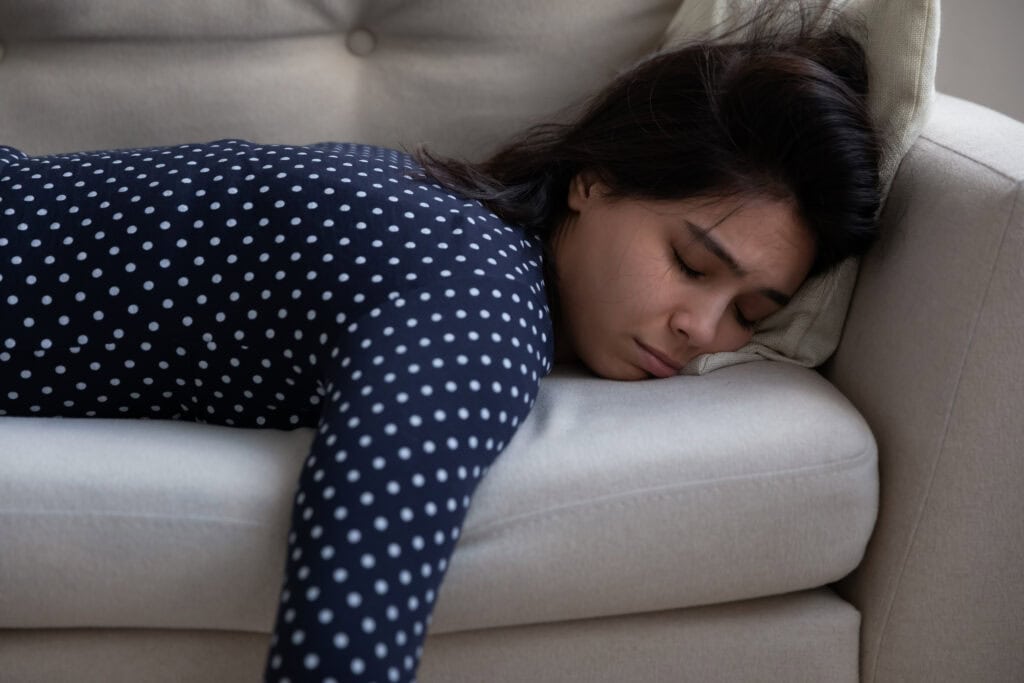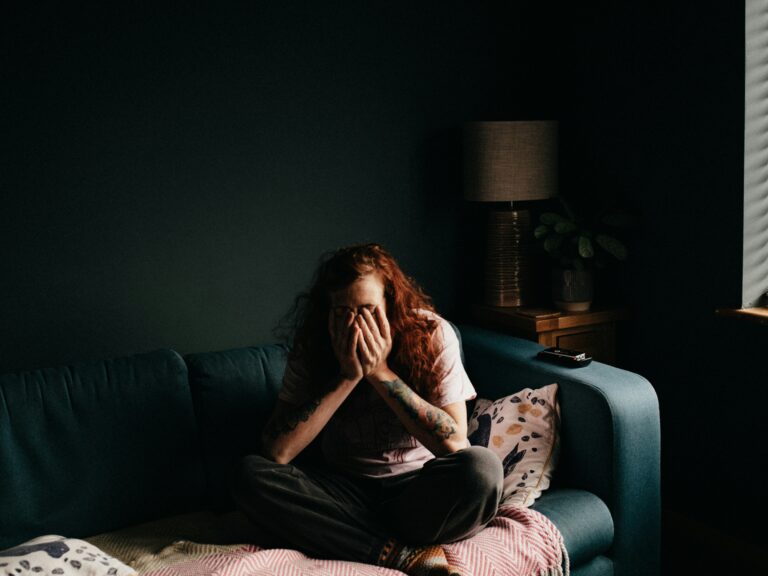The Critical Role of Sleep in Mental Health
Sleep is easier said than done when you’re drained from work and all the responsibilities at home. The importance of sleep is often overlooked and undervalued. Sleep is a necessity, It’s hard to get quality, restful, sleep. Especially In today’s fast-paced world, sleep is often the first thing we cut back on. With today’s progress-focused work environment, we try our best to balance our work-life, We stay up late to meet deadlines, go out with friends, or binge-watch TV shows, thinking we can “ Catch up on sleep” later, or we can manage without enough rest. However, evidence-based research shows that sleep is critical for physical and mental health. This blog will explore why sleep plays such an essential role in mental health, focusing on how it affects our mood, emotions, and ability to deal with stress.
The Science of Sleep In Mental Health
When we think of sleep, we think of dreaming or a state of stillness. But getting Sleep is few and far between. Sleep and our mindfulness towards it becomes hard to accomplish when we have work or personal responsibilities. Before diving into how sleep affects our mental health, it’s important to understand what happens when we sleep. Sleep is not a passive state; it’s an active process where the brain goes through different phases. There’s non-REM (non-rapid eye movement) sleep, which includes deep sleep, and REM (rapid eye movement) sleep, where dreaming happens. Both stages are important for repairing the brain and body.
During deep sleep, the brain processes and stores memories from the day. REM sleep, which is when most dreaming occurs, helps with managing emotions. If either stage of sleep is disrupted, it can lead to problems with mental health, increasing the risk of mood disorders like depression or anxiety disorders.
Sleep and Emotional Regulation
When we lack sleep we lack mindfulness in our reactivity. Our emotional and physical responses to lack of sleep are a clear indication of just how crucial sleep is. One of the most important ways sleep affects mental health is by helping to regulate emotions. During sleep, the brain processes emotional experiences and stores them, which helps you handle stress and anxiety better the next day. When we don’t get enough sleep, our emotional responses—also known as reactivity—can become exaggerated.
Studies show that sleep-deprived people are more likely to feel irritable, anxious, and stressed. The part of the brain responsible for controlling emotions called the amygdala, becomes more reactive when you’re sleep-deprived. At the same time, the prefrontal cortex, which helps us make rational decisions, doesn’t work as well without enough sleep. This imbalance can lead to an increased risk of mood disorders like anxiety disorders and depression. When you’re exhausted you tend to overreact to things you would normally dismiss.

Sleep and Cognitive Function
Our ability to think clearly, problem-solve, and retain information is also connected to sleep. Poor sleep health, especially when you don’t get enough deep sleep, can cause problems with focus and memory. This can make it harder to do well in school, retaining information or work, causing detail-oriented tasks to be overwhelming. It can increase the symptoms of certain mental health conditions, like ADHD and anxiety disorders.
When you’re sleep-deprived, your brain can’t process information as effectively, which can worsen feelings of stress and anxiety. People with chronic sleep disorders often report having cognitive problems, and over time, these issues can become more severe. Good sleep health is essential for keeping your mind clear and focused on mental health.
Sleep and Mood Disorders: Depression and Anxiety
There is a strong connection between poor sleep and mood disorders like depression and anxiety disorders. Evidence-based studies show that people who suffer from chronic insomnia are much more likely to develop depression than those who sleep well. In the same way, people with anxiety disorders often struggle to sleep, and this lack of sleep can make their anxiety worse.
Sleep disturbances can trigger or worsen mood disorders. For example, if you have one bad night of sleep, you may feel more anxious the next day. Over time, chronic sleep deprivation can lead to long-term mental health issues. Getting more deep sleep can improve emotional reactivity and reduce the risk of developing mood disorders.
Sleep and Stress Management
Sleep plays a huge role in how we handle stress. When we’re well-rested, our brain and body can better manage stressful situations. We have the ability to process ideas, and the clarity to organize our actions throughout the day. However, when we don’t get enough sleep, our bodies produce more cortisol, the stress hormone. Higher levels of cortisol make it harder to calm down after experiencing stress, which can lead to chronic anxiety and even mood disorders.
When we don’t get enough sleep our stress is not processed on an even scale, allowing our emotions to be heightened. Good sleep health, especially getting enough deep sleep, is essential for reducing emotional reactivity and staying calm in stressful situations. By improving sleep, we can lower our stress levels and protect our mental health.
The Impact of Sleep Disorders on Mental Health
Sleep disorders like insomnia and sleep apnea can have a major impact on mental health. Insomnia, which makes it hard to fall or stay asleep, is both a symptom of mood disorders like depression and anxiety disorders, and a risk factor for developing them.
Untreated sleep disorders, such as sleep apnea (a condition where breathing stops and starts during sleep), are linked to higher rates of depression and anxiety. Sleep apnea, in particular, can lead to fragmented sleep, causing poor sleep health and increasing emotional reactivity.
Sleep as a Preventive Measure for Mental Illness
One of the best reasons to prioritize sleep is its ability to prevent mental illness. Evidence-based research shows that sleep problems are often early warning signs of mood disorders like depression and anxiety disorders. By treating sleep disorders early, we might be able to prevent these conditions from developing or becoming worse.
Getting more deep sleep is especially important for building mental resilience. Deep sleep helps repair the brain and reduce emotional reactivity, making us better able to cope with challenges and stress.

Sleep and Recovery from Mental Illness
For people already dealing with mood disorders or anxiety disorders, improving sleep health is a crucial part of recovery. Evidence-based treatments like Cognitive Behavioral Therapy for Insomnia (CBT-I) have proven effective for treating sleep disorders while also improving symptoms of depression and anxiety.
Medications used to treat mental health issues can also impact sleep. Some medications improve sleep, while others may cause insomnia. That’s why it’s so important to talk to a healthcare provider about how to balance both sleep and mental wellness. Improving deep sleep can make a big difference in recovery, as it helps the brain recover from stress and emotional exhaustion.
How to Get More Deep Sleep and Improve Mental Health
Since deep sleep is so important for managing emotions and stress, improving the amount and quality of deep sleep should be a priority. Here are a few evidence-based strategies to improve sleep health and get more deep sleep:
- Stick to a Sleep Schedule: Going to bed and waking up at the same time each day helps your body regulate its internal clock and improves sleep health. Routine often results in real progress, giving yourself more control. Setting time management to help navigate your schedule so you can still get the sleep your body and mind needs to thrive.
- Create a Relaxing Sleep Environment: Creating an atmosphere where you find yourself at ease and relaxed can provide your mind with the need to wind down. Decompressing in a cool, dark, and quiet room is important for good sleep and increasing deep sleep.
- Manage Stress Levels: Reducing stress through meditation or mindfulness can lower cortisol levels, making it easier to get into deep sleep. Allowing you to clear and navigate the day-to-day tasks and stresses. Providing your mind the clarity to slow down at night.
- Avoid Caffeine and Alcohol: These substances can disrupt your sleep patterns and prevent you from getting into deep sleep.
- Exercise Regularly: Physical activity improves sleep health by helping you fall asleep faster and get more deep sleep.
Conclusion
In today’s busy world, sleep is often seen as something we can cut back on, or catch up on, but it’s crucial for both physical and mental health. Poor sleep health affects emotional reactivity, cognitive performance, and increases the risk of mood disorders like depression and anxiety disorders. By focusing on improving sleep health and getting more deep sleep, you can protect your mental well-being, reduce emotional reactivity, and handle stress more effectively.
Making sleep a priority is one of the best things you can do for your mental health. Whether you’re trying to manage stress, prevent mental illness, or recover from a mood disorder, getting enough sleep—especially deep sleep—is key to feeling and functioning your best.
Connect With Us Now
Reach out to us now for immediate support, or let us know the best time to contact you through our confidential callback service. Your journey to healing is just a conversation away.








